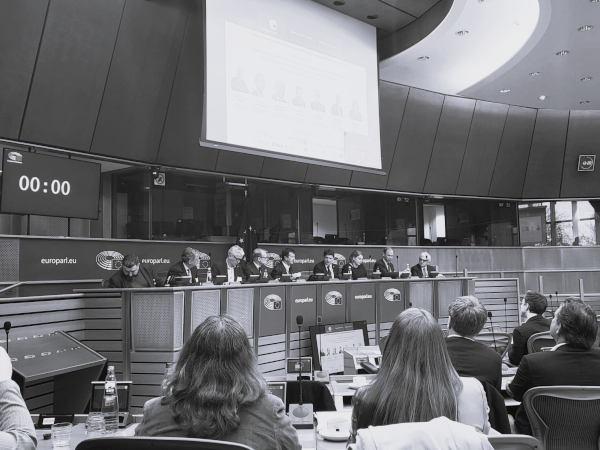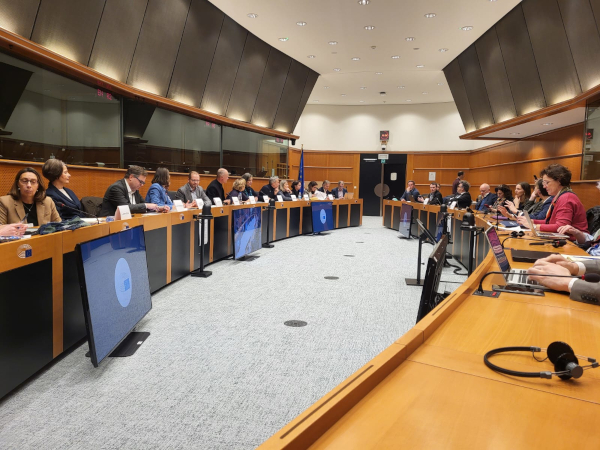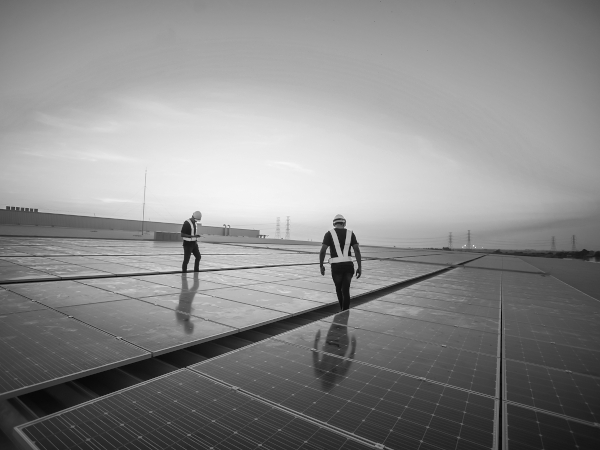Date: 24 June 2014
Bad for competitiveness, bad for jobs and the economy, bad for energy security, bad for climate, and bad for citizen’s energy bills” say leading industry in the building energy efficiency sector. The supposed agreement to propose a 27% non-binding target for energy efficiency in 2030 is a ‘less than business-as-usual scenario’ that would completely ignore the wide economic, social and environmental benefits of energy savings, and would be a disincentive for the much-needed energy renovation of the EU building stock.“An eventual decision to play down the ambition of the overall target on energy efficiency would completely eliminate any possible strong action in the building sector” said Jan te Bos, Director-General at Eurima.In a recent letter to EU Commissioners, the five trade associations made a clear call for a solid 2030 climate and energy framework including an energy savings target for buildings.
“Even the Commission’s own research demonstrates that higher ambition on energy efficiency equals more jobs and growth” added Adrian Joyce, Secretary-General at EuroACE “this is why we have difficulty understanding how earlier, clear calls from the European Parliament and a significant portion of EU Member States asking for an ambitious binding energy efficiency target can suddenly disappear into thin air”.
“EU Heads of State clearly mandated the Commission to firmly address the energy security issue by moderating energy demand” added Bertrand Cazes, Secretary-General at Glass for Europe “failing to grasp the huge energy saving potential of existing buildings and thus failing to enhance our energy security would be an unaffordable mistake and a political disgrace for the legacy of this Commission”.
The associations call on the College of Commissioners to show ambition and vision and agree on a strong binding target on energy efficiency (40% by 2030) based on the real potential of sectors. The contribution of buildings should be incentivised through a dedicated sectoral target. Research has demonstrated that a higher target brings higher benefits without increasing overall costs.
“The logic for such decision is, above all, economic” concluded Oliver Loebel, Managing Director at PU Europe “at a time when recovery remains weak in major parts of Europe, the building sector needs a strong push from EU policy-makers to develop its full growth and job creation potential”.
Note to Editors
Link here to letter to Commissioners, dated 30 May 2014: “Adequate framework to tap into the costeffective energy savings potential of buildings”, and here to related Press release “Energy efficient materials manufacturers and service providers call for a 2030 energy savings target for buildings”
Eurima is the European Insulation Manufacturers Association and represents the interests of all major mineral wool insulation producers throughout Europe. Eurima members employ directly over 20,000 people across Europe, with the installation of insulation products accounting for an estimated additional 300,000 man-years annually.
The European Alliance of Companies for Energy Efficiency in Buildings (EuroACE) represents Europe's leading companies involved with the manufacture, distribution and installation of energy savings goods and services for buildings. With a total turnover of 140 billion euros and employing 328,000 people, the EuroACE mission is to help Europe move towards a more sustainable pattern of energy use in buildings.
Glass for Europe is the trade association for Europe’s manufacturers of building, automotive and solarenergy glass, all derived from flat glass. Glass products not only provide light, comfort, style, security and safety, they are also essential to energy-efficient buildings, houses and transport. Glass for Europe represents five multinational companies accounting for nearly 90% of the EU’s flat glass production: AGC Glass Europe, NSG Group, Saint-Gobain Glass, Sisecam and Guardian.
PU-Europe is the European association representing the rigid polyurethane insulation industry. Its products help to save energy in a wide variety of applications in buildings, district heating, cooling and refrigeration, and industrial systems. PU-Europe members have a total turnover of Euro 4 billion and provide 18,000 jobs.
The Renovate Europe Campaign (REC), launched in 2011 is an initiative of EuroACE, the European Alliance of Companies for Energy Efficiency in Buildings. It is the only EU-wide campaign that focusses exclusively on ambitious renovation of the building stock in the EU and is the voice that ‘bangs the drum’ for energy efficient renovations, taking a technology neutral, integrated and holistic approach to energy efficient renovations.







Add new comment